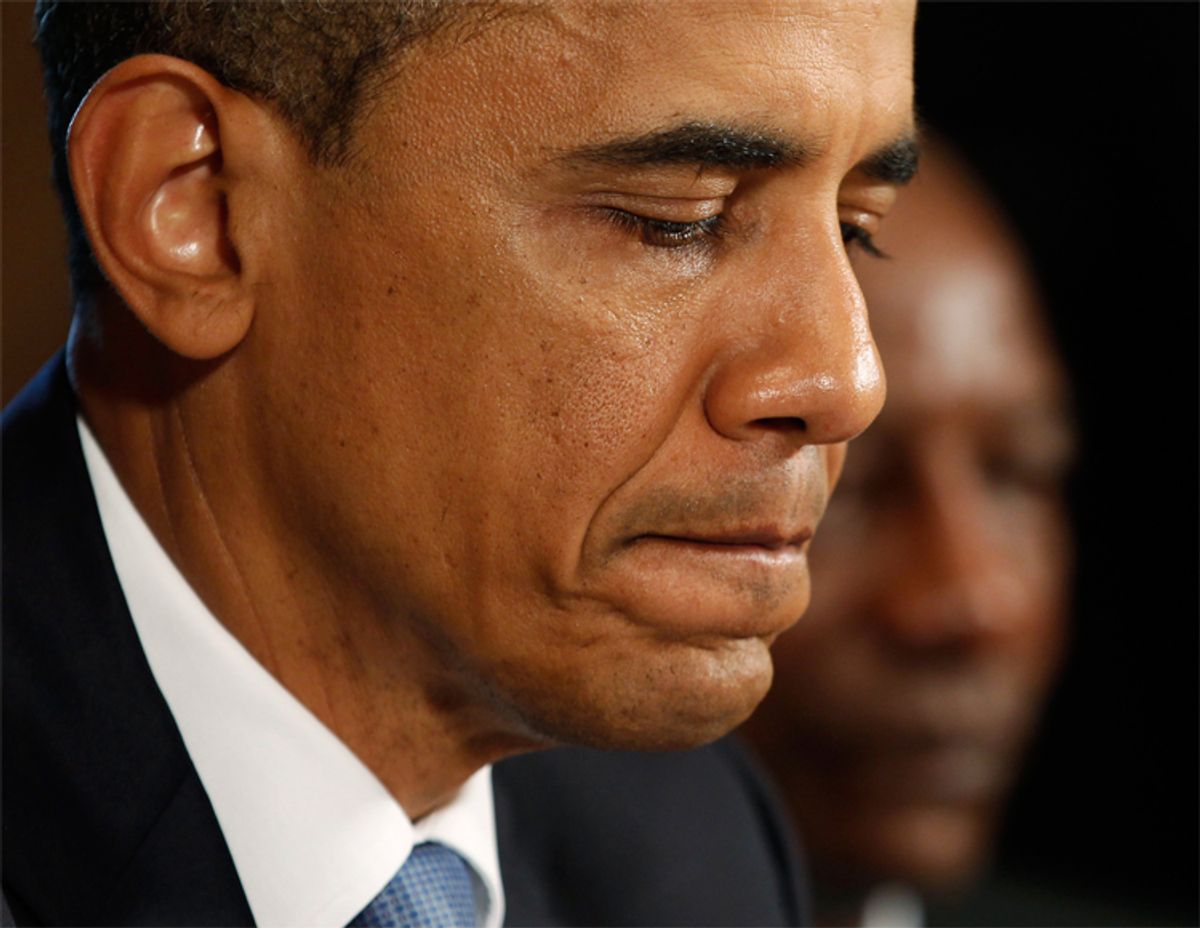In the middle of a left-wing recrimination frenzy, Time magazine's Jay Newton-Small attempts to cut through liberal doom and gloom with a pep rally: "Five Things for Liberals to Like in the Debt Ceiling Deal.
Among them, smaller than expected discretionary funding spending cuts in 2012 and 2013.
The immediate cuts: It may seem like a lot, but the $917 billion in the first phase of cuts were carefully negotiated by Vice President Joe Biden and his group. They include $350 billion in Pentagon cuts -- a win for liberals. They don't touch entitlement benefits, another win. And they set top line numbers for the next decade of budgets that aren't draconian. It still cuts where liberals might prefer to spend, but most of the savings are backloaded to avoid extreme austerity in next few years of fragile economic recovery. Just $7 billion would be cut in 2012, and only $3 billion in 2013. And of that combined $10 billion, half would come from the Pentagon.
Josh Barro
Hurray! We've managed to avoid "extreme austerity." That's a liberal win. Strangely, the stock market hasn't managed much jubilance in response. As of around 2 p.m. the Dow Jones Industrial Average had dropped another 84 points, matching almost perfectly its daily pace of decline from last week. Investors appeared to have reviewed what the Economist's Greg Ip called a "a mishmash of expedient stop gaps and promises that tilts heavily to Republican priorities while guaranteeing more wrangling and uncertainty in the months ahead" and declined to be impressed.
The proximate cause of investor gloom may well have been something else entirely. The Institute for Supply Management's Manufacturing Index turned in its lowest reading in two years, a strong signal that the various woes afflicting the economy in the first six months of this year are showing no sign of abatement so far. And that's a problem that the debt ceiling deal is simply not designed to address.
On the contrary, it could easily make things worse. Or at least, that's the opinion of the CEOO of the biggest bond investment company in the world. From the New York Times.
"Unemployment will be higher than it would have been otherwise," Mohamed El-Erian, chief executive of the bond investment firm Pimco, said Sunday on ABC. "Growth will be lower than it would be otherwise. And inequality will be worse than it would be otherwise."
Maybe El-Erian was unaware of the exact details of discretionary funding spending cuts in 2012-2013 when he made that comment to the New York Times. But his points are worth belaboring, because unemployment is already high, growth is very slow, and inequality is at heights not seen since before the Great Depression. And this deal does nothing to ameliorate any of those things. Slumping manufacturing activity undermines investor "confidence" much more quickly than a debt ceiling deal builds it up. Our political leaders have spent the vast majority of the past month hammering out a deal that is bizarrely unconnected with the emerging economic reality on the ground.
With the debt deal done Greg Sargent reveals at the Washington Post that "there's finally a glimmer evidence that officials are beginning to talk about that long-promised pivot to jobs that seemed to get snuffed out by the nonstop deficit chatter that has dominated Washington for months and months." But it's hard to comprehend what that could mean. Pivoting to jobs requires more than making some speeches about jobs -- it requires resources.
Where are such resources going to be found, with this Congress and this White House?

Shares